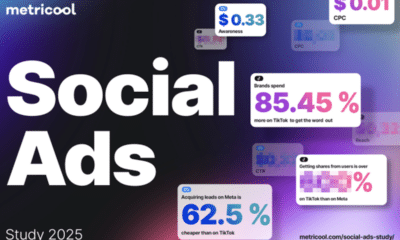Platform
Meta’s Future Hangs In Balance As Landmark Antitrust Trial Concludes
A landmark antitrust trial against Meta Platforms concluded on Tuesday, May 27, after six weeks of testimony from 38 witnesses, placing the social media giant’s future in the hands of U.S. District Judge James E. Boasberg, per The New York Times.
The Federal Trade Commission (FTC) is seeking to force Meta to divest Instagram and WhatsApp, acquisitions it claims were part of a “buy or bury” strategy to eliminate competition.
The core dispute centers on how to define Meta’s competitive landscape. The FTC argues that Meta maintains a monopoly in “personal social networking,” competing primarily with Snapchat, whereas Meta contends that it faces broader competition.
“The vast majority of the experience is more around exploring your interests, entertainment, things like that,” CEO Mark Zuckerberg testified in April. Meta’s defense highlighted similarities between Instagram Reels and TikTok to demonstrate competitive pressure.
FTC attorney Daniel Matheson presented internal communications where Zuckerberg acknowledged that by acquiring platforms, “what we’re really buying is time” before competitors could reach a similar scale. The government alleges these acquisitions caused Meta to invest less in improving Facebook while limiting consumer options.
Consumer Sentiment Supports FTC Claims
A recent Forrester Research survey of 500 online adults across the United States, the United Kingdom, and Canada reveals that 54% believe Meta holds a monopoly on personal social networking, while 27% remain neutral and 19% disagree.
The research also indicates consumer support for potential divestiture: 43% agree that spinning off Instagram would be beneficial, with 50% neutral. Similarly, 45% support WhatsApp independence, with 50% neutral.
Trust Challenges Persist
Meta continues to face trust issues predating its 2021 rebranding from Facebook. Forrester’s February 2025 survey shows that only about a third of online adults (35% in the U.S., 30% in the UK) trust Meta as much or more than they did in 2024, with even fewer expressing confidence in Zuckerberg.
Both sides will file follow-up briefings this summer, with Judge Boasberg promising to work “expeditiously” on his decision. No closing arguments are expected.
If the FTC prevails, Meta could be forced to divest platforms that have become crucial to its business model. According to analytics firm EMARKETER, Instagram is expected to represent more than half of the company’s U.S. revenue this year.
The New York Times notes that the case, filed five years ago, is part of broader government efforts to regulate dominant technology companies, including recent antitrust actions against Google, Apple, and Amazon.
Cecilia Carloni, Interview Manager at Influence Weekly and writer for NetInfluencer. Coming from beautiful Argentina, Ceci has spent years chatting with big names in the influencer world, making friends and learning insider info along the way. When she’s not deep in interviews or writing, she's enjoying life with her two daughters. Ceci’s stories give a peek behind the curtain of influencer life, sharing the real and interesting tales from her many conversations with movers and shakers in the space.





















